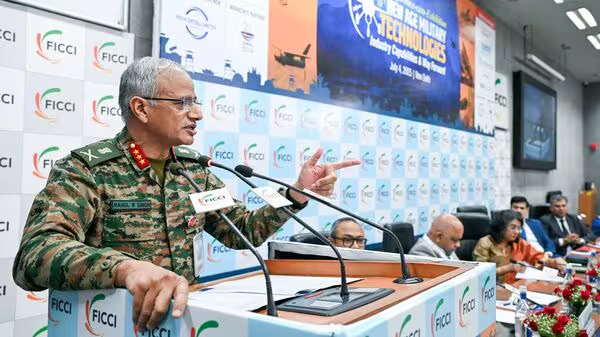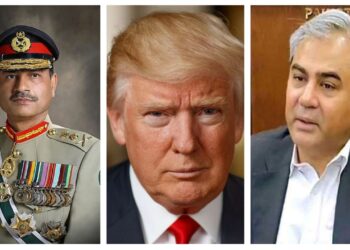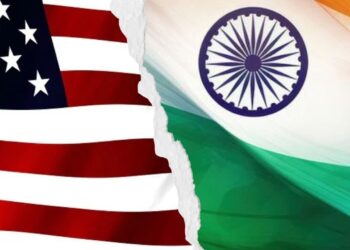Islamabad: In a rare admission, Indian Deputy Army Chief Lieutenant General Rahul Singh has openly acknowledged the Indian Army’s failure to overcome Pakistan on the battlefield, offering a range of explanations to justify defeat.
During the Director General Military Operations (DGMO) talks, Lieutenant General Singh conceded that the Pakistani military had precise intelligence regarding Indian troop movements.
He further admitted that Pakistan’s advanced C4ISR (Command, Control, Communications, Computers, Intelligence, Surveillance, and Reconnaissance) capabilities left Indian forces astonished.
Highlighting the technological edge of the Pakistan Air Force, Singh stated that its electronic warfare proficiency during Operation Sandor was unparalleled.
He also accepted that India’s larger geographical size contributed to the failure of its air defense systems.
According to the Indian Deputy Army Chief, Pakistan’s Al-Fatah rocket systems effectively struck Indian military installations, inflicting significant damage.
Complaining about operational challenges, Singh remarked that while India faced only one border, there were effectively “three enemies” confronting it. He also lamented that crucial military supplies did not arrive in time.
Singh further alleged that China tested its weapons on Indian territory, treating it as a laboratory.
Notably, just last month, Indian Air Chief Marshal Amar Preet Singh also criticized India’s defense planning for never being completed on schedule.
Indian military officials have claimed that Pakistan, Turkey, and China collaborated to defeat India—an assertion many observers see as a feeble attempt to rationalize their shortcomings to the Indian public.
Defense analysts have pointed out that Pakistan has never resorted to such complaints over India’s use of Israeli and French weaponry.
They argue that the escalating public criticism of the Indian government reflects deepening internal political turmoil.
According to security experts, Pakistan retains the capability to target India’s economic and industrial complexes in response to any future provocations.
The Inter-Services Public Relations (ISPR) has already stated that during the recent conflict, Pakistan employed only 10 to 15 percent of its technical capabilities, keeping the remainder in reserve.
Pakistan’s armed forces, backed by professional excellence, courageous leadership, and the unwavering support of the nation, decisively defeated India.
Analysts have advised Indian leaders to focus less on complaining about “three enemies” and more on rethinking the flawed strategy that has left New Delhi increasingly isolated on the world stage.
























